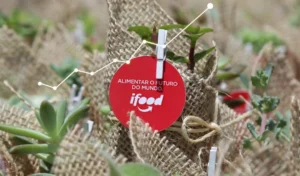With the arrival of the pandemic, most Brazilians changed their travel habits in cities. In capitals such as São Paulo, Porto Alegre, Belo Horizonte and Rio de Janeiro, half of the population even stopped traveling to carry out their routine tasks, according to data from research carried out between March and September 2020 by the BRT+ Center of Excellence, with support from WRI Brazil. The escape from crowds, on the other hand, boosted the demand for private transport services and also opened the doors to one of the most sustainable and financially accessible modes: cycling.
According to a survey by NZN Intelligence in partnership with Estadão Summit Mobilidade Urbana, 31.6% of Brazilians started to travel by bicycle or on foot after the start of the pandemic. The use of cars, in turn, grew by 17% in the country between January 2020 and September 2021, as revealed by Apple in a comparative study. Public transport, which was used by more than 40% of the population, fell of 15% in the number of users, according to research by the BRT+ Center of Excellence.
“The 'new normal', caused by the pandemic, took people out of their comfort zone and made them rethink their choices. With emptier cities, for example, these people started to walk or bike to places more often. However, despite the awakening to more active mobility, we also saw the emptying of public transport, being replaced by private transport,'' emphasized Maína Celidonio, Rio de Janeiro's municipal secretary of Transport, during Summit Tembici 2021, one of the main events on Mobility in the country.
In parallel, when the World Health Organization (WHO) warned that contamination in closed environments was much greater than outdoors, there was a tendency for cities to invest in this second option, which turned the spotlight on the possibilities in around bicycles as an alternative mode, as well as the need to seek better conditions for passersby. “Fortaleza, for example, managed to significantly increase the number of cycling routes in the city; but I agree that there is a portion of users who stopped using public transport and switched to private transport”, commented Lorena Freitas, Mobility Management Coordinator at ITDP Brasil.
Find out more about urban mobility in Brazil.
Mobility alternatives that have been gaining ground
1- Dust off your bike and use it!
If you are a person who uses a bicycle sporadically or only in specific leisure situations, a good idea is to try to include it in other moments of your daily life. Take advantage of the bike paths available in your city.
2- Collaborative carpooling
When possible, arrange a ride with someone who works with you or who goes to the same part of the city (following all precautions with personal protective masks and alcohol gel).
3- Good old walk
Neighborhoods where the population can find everything – or almost everything – offer an economic solution for everyone, in addition to being smarter for the environment. With bakeries, schools and supermarkets nearby, for example, it is possible to get around on foot or using non-polluting modes more frequently.
The event, held on September 16, was also attended by Ana Valéria Borges, from the Executive Superintendency of Urban Mobility of Belém; Tomás Martins, Co-founder and CEO at Tembici; and João Lacerda, digital communications and public policy professional, as mediator.
iFood Pedal is a non-polluting alternative for delivery
The search for sustainable modes that bring efficiency to the operation's logistics is among iFood's goals. Among them, the bicycle stands out – the protagonist of iFood Pedal, iFood's shared bike program for delivery people. The initiative, in partnership with Tembici (a technology company that is a reference in micro mobility and solutions for urban spaces), also includes the “Pedal Responsa” course for the personal and professional development of those who use the bike for delivery.
In 2020, iFood Pedal was recognized in the “Innovation of the Year” category at the Estadão Mobilidade award. Last August, the program totaled 182 thousand requests, avoiding the emission of 54 tons of CO2 into the atmosphere.
In addition to investing in the bike mode, iFood also invests in the development of drones — in the first half of 2021 alone, there were more than 300 deliveries using the non-polluting mode — and the Ada robot, an electric and sustainable 100%.


